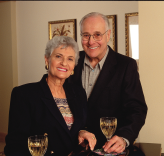Where The Needs Of Others Come First · Available 24x7 For Emergencies
In This Issue:
- Tips For Keeping those Knees Healthy
- Helping Senior Citizens Age Well
- Senior Care Website of the Month: The Alzheimer’s Reading Room
- Senior Care Tool of the Month: Revolutionary BookHolder
Tips For Keeping those Knees Healthy
 It is important for everyone, especially seniors, to maintain healthy knees. In our fast-paced world we don’t always bear in mind just how vital it is to keep our knees strong and functioning properly. Often times, it’s easy to forget that we need to maintain our knees until it is too late or they are no longer working properly, which is frequently the case with seniors.
It is important for everyone, especially seniors, to maintain healthy knees. In our fast-paced world we don’t always bear in mind just how vital it is to keep our knees strong and functioning properly. Often times, it’s easy to forget that we need to maintain our knees until it is too late or they are no longer working properly, which is frequently the case with seniors.With this in mind, what are some helpful steps we can take, or we can encourage our elderly loved ones to practice, to keep their knees at their optimum performance? Gretchen Reynolds, a writer for the AARP online magazine, has offered the following suggestions in her article “Keep Your Knees Healthy”:
1. Move More
2. Strengthen Your Thigh Muscles
3. Stretch Regularly
4. Lose the Weight, Finally
5. Take Glucosamine/Chondroitin
6. Get to the Doctor—Pronto—If Your Knee Is Swollen
7. If Your Doctor Recommends Surgery Right Away, Seek a Second Opinion
To read this article in its entirety or to learn more about keeping your knees healthy, please visit the following website: http://www.aarpmagazine.org/health/keep_your_knees_healthy.html
Helping Senior Citizens Age Well
 At A Servant’s Heart, we know that helping your elderly loved ones age well is a main concern. We also know that it can be difficult to figure out where to begin. There are some key things you should know to help your loved one stay as healthy and active as possible, for as long as they can.
At A Servant’s Heart, we know that helping your elderly loved ones age well is a main concern. We also know that it can be difficult to figure out where to begin. There are some key things you should know to help your loved one stay as healthy and active as possible, for as long as they can.Below are some great steps to helping your senior citizen age well:
1. Control Blood Pressure.
This can be a very important factor in helping the elderly age well. High blood pressure can easily lead to strokes, eye problems, kidney failure, heart disease, and many other serious complications. The normal range for blood pressure should be a systolic pressure (top number) less than 120 and a diastolic pressure (bottom number) less than 80.
There are quite a few steps senior citizens can take to avoid developing high blood pressure:
- Stay at a healthy weight for your height and age. Being overweight can quickly lead to high blood pressure.
- Exercise regularly. Even minimal exercising can significantly lower your blood pressure.
- Maintain a healthy diet high in potassium, which is helpful in lowering blood pressure. Eat lots of fruit, vegetables, whole grains and low-fat dairy products.
- Do not eat foods high in sodium.
- Do not drink excessive amounts of alcohol, as this can raise your blood pressure quickly.
- Consult your doctor for other advice or prescription medications, if necessary, to help keep your blood pressure stable.
2. Control Cholesterol.
Excess amounts of cholesterol in your body can potentially clog arteries, increasing the risk of a heart attack or heart disease, which are very common risks for the elderly. Some steps you can encourage the elderly loved ones in your life to take in order to reduce the levels of high-density lipoproteins (bad cholesterol) in their bodies are:
- Maintain a healthy diet with minimal amounts of high-density lipoproteins.
- Stick to a moderate amount of regular exercise.
- Keep to a healthy weight for your height and age.
- If these are not enough, consult your physician about the medications available for decreasing cholesterol.
3. Control Weight.
Being overweight can drastically increase an elderly loved one’s chances of developing many diseases such as high blood pressure, heart disease, diabetes, cancer, sleep apnea, and other health-related problems. Helping a senior lose between five and fifteen percent of his or her body weight can greatly decrease his or her chances of incurring these diseases and many others.
Here are a few tips to help you keep your senior on track at a healthy weight:
- Record what is being eaten on a daily log.
- Make sure not to shop hungry. If you make a list before you go shopping you are less likely to buy unhealthier foods on a whim.
- Set a goal of loosing the weight at a healthy rate of one to two pounds per week.
- Store snack foods where you cannot see them easily or every time you enter the kitchen.
- Help yourself to smaller portions at meals, including dining out at restaurants.
- Do not eat in front of the TV. If you eat at the table you will be more aware of what you are eating.
- Stick to a regular, manageable exercise plan. Find creative ways to keep the exercising fun.
- Know that you will have good and bad days and reward yourself when you are doing well.
4. Exercise Regularly.
The elderly have much less muscle mass in their bodies than younger generations. However, strength exercises can quickly help to restore muscle mass. Exercising and building muscle mass burns calories, and the more calories you burn means increased weight loss.
Set a realistic goal of trying to work out for an hour, 4 or 5 days per week. Make sure to talk to your doctor about what type of exercise plan will be most beneficial.
5. Don’t Smoke or Drink.
Tobacco use is a leading risk factor for lung cancer, the most common form of cancer leading to death. Smoking increases the risks of developing chronic lung and heart diseases. It is never too late to quit smoking and it will certainly help senior citizens to age well.
Drinking too much alcohol is very dangerous for senior citizens. It is recommended that men have no more than two drinks per day and women no more than one. Drinking more than these recommended amounts can lead to developing certain cancers in the liver, throat, esophagus, and larynx on top of causing cirrhosis of the liver, problems with the immune system, and brain damage.
For more information on helping your elderly loved one age well and stay healthy throughout his or her life, please visit the following website: http://amazooo.com/lifestyle/family-life/seven-steps-to-help-senior-citizens-age-well.html
Senior Care Website of the Month: The Alzheimer’s Reading Room
 The Alzheimer’s Reading Room is a great online resource for current news and information on Alzheimer’s, and for advice on how best to deal with it. The website is designed with many types of readers in mind including seniors dealing with Alzheimer’s and dementia, their families and even caregivers with Alzheimer’s clients. This website contains more than 1,050 articles and 8,600 links to other sites.
The Alzheimer’s Reading Room is a great online resource for current news and information on Alzheimer’s, and for advice on how best to deal with it. The website is designed with many types of readers in mind including seniors dealing with Alzheimer’s and dementia, their families and even caregivers with Alzheimer’s clients. This website contains more than 1,050 articles and 8,600 links to other sites.The Alzheimer’s Reading Room was started by Bob DeMarco. He is not only the editor of the website but he is an Alzheimer’s caregiver, which gives him great insight and hands on experience with knowing how to deal with this disease. He started this website with caregivers and families dealing with Alzheimer’s seniors in mind, realizing the great need they had for high quality information about this disease.
Some of the articles you can check out include topics dealing with different types of dementia, facts you should know about Alzheimer’s, memory tests and quizzes, useful tools for Alzheimer’s caregivers, ways to keep Alzheimer’s at bay, and many, many more!
The Alzheimer’s Reading Room has more than 1,600 subscribers and is rapidly growing. If you would like to subscribe to the Alzheimer’s Reading Room or want to check out the many articles available online, please visit the following website: http://www.alzheimersreadingroom.com/
Senior Care Tool of the Month: Revolutionary BookHolder

This handy tool is great for helping seniors with arthritis, poor vision, or limited hand mobility. The LEVO BookHolder is designed for seniors to enjoy reading hands-free. The LEVO BookHolder can be used while sitting, reclining, or even lying in bed. It is strong and sturdy so there is so need to worry about it holding heavier books. From weighty novels to lightweight paperbacks, the BookHolder can hold it all.
This tool is conveniently designed for seniors to read while doing a variety of activities. If they enjoy reading while exercising, they can use the BookHolder on a treadmill. If they enjoy reading in bed at night, the BookHolder holds any book inverted. If they enjoy cooking, they can use the BookHolder to keep their place, even for the bulkiest of cookbooks. If your loved one is struggling to read because their arms get tired or they get pain in their neck or back from holding the book up, this tool might be just what they need.

The LEVO BookHolder costs $169.00 and is well worth the investment. There is also a model available for $79.00 that is designed specifically for reading at a desk. This desk model clamps onto any desk or table, up to 2 inches thick. It takes up very little space, leaving plenty of room for other books, notes, or a computer. It is a lighter-duty design than the BookHolder, but it can hold magazines, reports, or books up to 5 pounds!
For more information on the LEVO BookHolder stand and the LEVO BookHolder desk model, or to order one for your elderly loved one, please visit the following website: http://www.bookholder.com/
[get-post tag=”about_us”]
